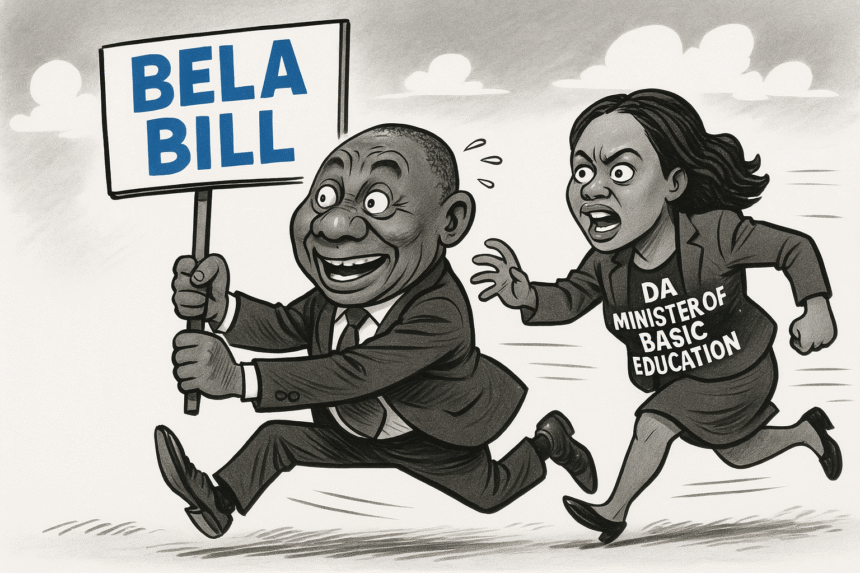South Africa’s parliamentary portfolio committee on basic education has expressed concern over newly gazetted regulations on the admission policies and capacity limits of public schools.
The regulations, published last week by Basic Education Minister Siviwe Gwarube for public comment, are intended to give effect to the Basic Education Laws Amendment (BELA) Act. However, committee chairperson Joy Maimela of the ANC accused the minister of deviating from the wording and intent of the law.
Maimela’s objections focus on how the regulations define admissions policy. The gazetted text refers to “the demographics and education needs of the surrounding community.” At the same time, the BELA Act specifies that admissions are the responsibility of the provincial head of department (HOD) and should be based on the “broader education districts.”
She argued that the change in emphasis could reinforce local demographic homogeneity, rather than breaking down barriers to integration as intended by the Act.
The regulations also state that the HOD will determine “feeder zones” for schools to manage capacity and coordinate parental preferences. Maimela warned that such provisions have historically been linked to exclusionary practices, keeping previously disadvantaged learners out based on location.
“It seems these regulations are attempting to rewrite the BELA Act and reintroduce matters that were unsuccessfully contested in the legislative drafting process,” she said.
The committee also criticised the regulations being published in stages. While acknowledging that a modular release could avoid technical delays, Maimela said a fragmented rollout undermined coherence and urgency.
“South Africa’s children cannot afford to wait for bureaucratic caution or political compromise,” she said.
The BELA Act came fully into effect on 24 December 2024, when President Cyril Ramaphosa signed the final sections into law. The bulk of the Act had been signed in September, but sections dealing with admissions and language policy were delayed for three months to allow the newly formed Government of National Unity to seek consensus.
These sections were controversial. The Democratic Alliance (DA) and other critics argued that they centralised control in the hands of the government, reducing the role of school governing bodies (SGBs) in deciding admissions and language of instruction. The ANC and its allies countered that SGBs retained the ability to draft policies, but with the HODs having the final say.
Despite the pause, the ANC secured the passage of the legislation without changes in December. The DA, while opposed to the sections, emphasised that its minister, Gwarube, would oversee the regulations implementing the Act.
The regulations gazetted last week are seen as less strict than the original wording of the Act, a move welcomed by some SGB groups that had opposed the legislation. But the portfolio committee remains wary.
“The committee will continue to closely monitor this process and engage robustly with the Minister on the gazetted regulations, which seem to deviate from the national objective,” Maimela said.
Public comments on the regulations are now being invited before any final decisions are made.










